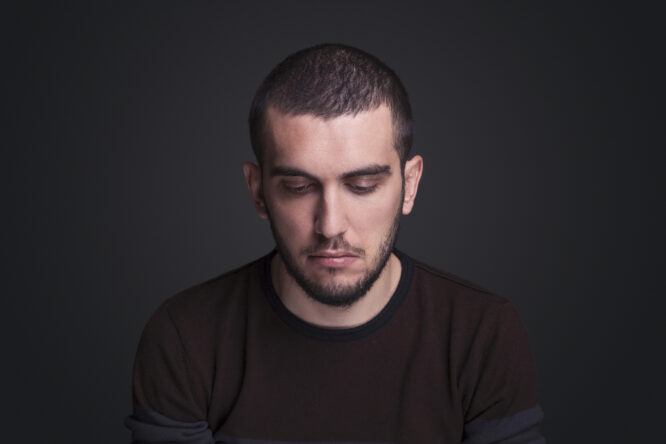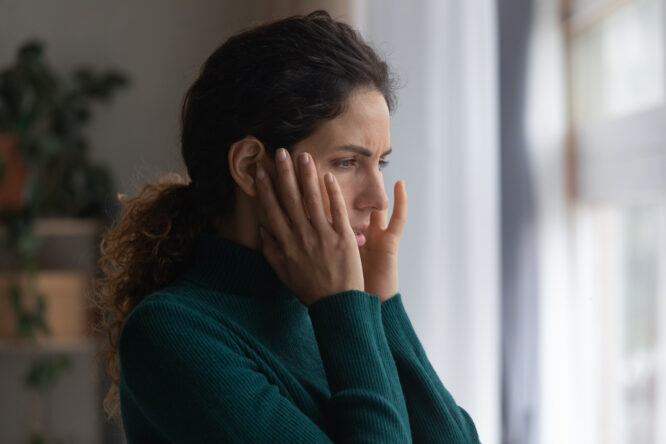
Depression doesn’t always look like sadness or tears. Sometimes, it hides in the background—quiet, low-key, and easily mistaken for just being “off.” It can show up in small habits, subtle changes in how someone moves through the day, or a slow fading of energy and interest. If you’ve felt out of sync lately but can’t quite explain why, or if someone you care about seems different but not obviously unwell, these are the kinds of signs worth noticing.
1. Everything feels harder than it should.
It’s not just about big tasks—sometimes, it’s brushing your teeth or sending a simple email that suddenly feels like climbing a mountain. You’re not lazy. You’re not being dramatic. Your energy just isn’t there the way it used to be. When even routine things feel like too much effort, it’s often a sign that your emotional bandwidth is running low. Depression doesn’t always stop you from functioning, but it does quietly drain your drive.
2. You can’t enjoy the things you used to love.
Maybe you still go through the motions—watch the same shows, listen to the same music, chat with the same people, but something’s changed. You don’t feel the spark. You’re not laughing the way you used to. That kind of emotional flatness is a common part of depression. You’re not trying to be dramatic. It’s just that the joy starts to feel distant, even from things that used to make you feel alive.
3. Your sleep patterns are all over the place.
Some nights you’re wide awake for hours. Other times, you sleep way more than usual and still wake up exhausted. It’s not just poor sleep—it’s like your body can’t figure out what it needs anymore. When sleep becomes erratic without a clear reason, it’s often a sign your mental health is struggling in the background. The mind and body stop syncing up the way they usually do.
4. You start avoiding messages or cancelling plans.
You want to stay connected, but every message feels like pressure. Responding takes effort you don’t have. Even meeting up with someone you like can feel oddly overwhelming. That subtle withdrawal is common when depression creeps in. It’s not about disliking people—it’s about feeling like you have nothing to give, so you slowly start pulling back.
5. Your appetite changes in small (or big) ways.
You might not even notice at first. Maybe you’re skipping meals, or suddenly reaching for comfort food without thinking. You’re not actively choosing; you’re just not feeling tuned in to your body. Depression can mess with hunger cues in both directions. You might lose your appetite altogether or use food as a way to self-soothe when emotions feel too much or too vague to name.
6. You feel like you’re going through the motions.
Your days look fine from the outside—you show up, do the job, smile when needed, but inside, you feel disconnected. Like you’re floating through your own life rather than really living it. This numbness is a subtle sign of depression that’s easy to overlook. It doesn’t always feel bad—it often just feels… blank. However, that emptiness can weigh heavily over time.
7. You’re more irritable than usual.
People often think depression means being quiet and withdrawn, but sometimes, it shows up as snappiness, frustration, or unexpected anger. You lash out over small things, then feel guilty afterwards. That constant low-level irritability is often a sign that you’re overwhelmed. Your nervous system is stretched thin, and even tiny annoyances start feeling too big to manage calmly.
8. You can’t concentrate like you used to.
Reading the same paragraph over and over, zoning out mid-conversation, forgetting basic things—your brain just feels foggy. It’s frustrating, especially when you’re used to being sharp or on top of things. That mental sluggishness is another overlooked sign of depression. It’s not a lack of motivation—it’s that your mind feels too full or too flat to focus properly.
9. You feel weirdly guilty about everything
You start apologising more. You assume people are annoyed with you. You feel bad for saying no, for resting, even for existing on hard days. It’s like your self-worth has gone quiet in the background. The constant guilt isn’t always obvious at first—but when everything starts feeling like your fault, it’s often because your inner voice has moved into a more critical, heavy place.
10. You stop caring about basic self-care.
Showering, tidying, getting dressed—none of it feels urgent, and none of it feels rewarding. You’re not consciously deciding to skip it; you just can’t find a reason to bother. Such slow disconnection from your own needs is often a red flag. It’s not laziness. It’s a sign that you’ve stopped feeling like your well-being matters, and that’s worth paying attention to.
11. You keep saying “I’m just tired” when people ask.
“Tired” is the easiest way to describe it. You don’t want to open up, or maybe you don’t even know what’s wrong. So you default to that one word that seems socially acceptable. Of course, when the tiredness doesn’t go away after sleep or downtime, it’s often emotional. That kind of deep, persistent fatigue is one of depression’s most common disguises.
12. You start feeling numb when you know you should feel something.
Good news doesn’t land. Bad news doesn’t quite hit. You hear things, experience things, but your emotional response feels distant, delayed, or muted altogether. Such intense emotional disconnection is easy to miss, especially if you’re still functioning on the outside. However, when life stops feeling textured or meaningful, that’s a sign something deeper is going on.
13. You stop seeing the point in trying.
Maybe not in a dramatic, “give up on everything” way, but in a quieter sense. You stop pushing for change, setting goals, or planning things to look forward to. Life just feels… stuck. That slow fade of hope or drive can sneak up on you. It’s one of depression’s most overlooked traits—the way it drains your belief that things could feel better again someday.




